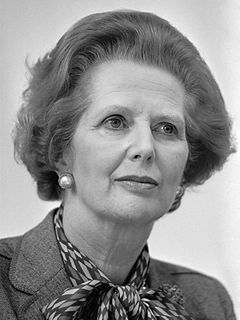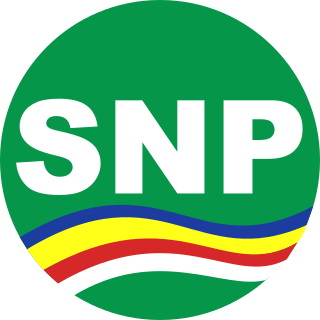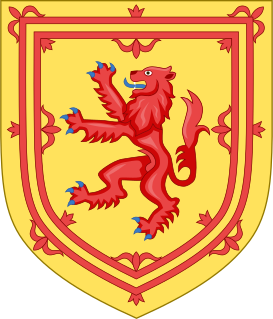Related Research Articles

The politics of Seychelles have historical roots in both one-party socialism and autocratic rule. Following independence from the United Kingdom in 1976, Seychelles was a sovereign republic until 1977, when the original President and leader of the Seychelles Democratic Party, James Mancham, was overthrown in a bloodless coup by the Prime Minister France-Albert René. René installed a single-party socialist state under the Seychelles People's Progressive Front which remained in place until 1993, when multiparty elections took place for the first time since independence. Modern day Seychelles governance takes place in a framework of a presidential republic, whereby the President of Seychelles is both head of state and head of government, and of a multi-party system. Executive power is exercised by the government. Legislative power is vested in both the government and the National Assembly.

The United Kingdom is a unitary state with devolution that is governed within the framework of a parliamentary democracy under a constitutional monarchy in which the monarch, currently Queen Elizabeth II, is the head of state while the Prime Minister of the United Kingdom, currently Boris Johnson, is the head of government. Executive power is exercised by the British government, on behalf of and by the consent of the monarch, and the devolved governments of Scotland, Wales and Northern Ireland. Legislative power is vested in the two chambers of the Parliament of the United Kingdom, the House of Commons and the House of Lords, as well as in the Scottish and Welsh parliaments. The British political system is a two party system. Since the 1920s, the two dominant parties have been the Conservative Party and the Labour Party. Before the Labour Party rose in British politics, the Liberal Party was the other major political party, along with the Conservatives. While coalition and minority governments have been an occasional feature of parliamentary politics, the first-past-the-post electoral system used for general elections tends to maintain the dominance of these two parties, though each has in the past century relied upon a third party, such as the Liberal Democrats, to deliver a working majority in Parliament. A Conservative–Liberal Democrat coalition government held office from 2010 until 2015, the first coalition since 1945. The coalition ended following parliamentary elections on 7 May 2015, in which the Conservative Party won an outright majority of seats, 330 of the 650 seats in the House of Commons, while their coalition partners lost all but eight seats.

The 1983 United Kingdom general election was held on Thursday 9 June 1983. It gave the Conservative Party under the leadership of Margaret Thatcher the most decisive election victory since that of the Labour Party in 1945, with a majority of 144 seats.

The 1992 United Kingdom general election was held on Thursday 9 April 1992, to elect 651 members to the House of Commons of the United Kingdom. The election resulted in the fourth consecutive victory for the Conservative Party since 1979 and would be the last time that the Conservatives would win an overall majority at a general election until 2015. It was also the last general election to be held on a day which didn’t coincide with any local elections until 2017. This election result took many by surprise, as opinion polling leading up to the election day had shown the Labour Party, under leader Neil Kinnock, consistently, if narrowly, ahead.

United Seychelles is a political party in Seychelles. It publishes a newspaper called The People. It was known as the Seychelles People's Progressive Front until June 2009, when it changed its name to the People's Party. The party changed its name again in November 2018, from the People's Party to United Seychelles.

The Seychelles National Party(SNP) is a liberal political party in Seychelles. Its followers emphasize active multiparty democracy, respect for human rights and liberal economic reforms. It was founded in response to what it called the "totalitarian regime" of former President France-Albert René. It publishes a newsletter called Regar, which is frequently sued for libel by government officials. On Regar's front page of every issue is a quote from the constitution of Seychelles invoking their right to freedom of speech and freedom of expression.
The Parti social démocratique du Québec was the Quebec wing of the Co-operative Commonwealth Federation. It was founded in 1939 as the Fédération du Commonwealth Coopératif and was led by Romuald-Joseph Lamoureux in the 1944 general election, by Thérèse Casgrain from 1951 to 1957 and by Michel Chartrand from 1957 to 1960. The name Parti social démocratique was adopted in 1955.

Wavel Ramkalawan is a Seychellois politician and Anglican priest who has been serving as the president of Seychelles since 26 October 2020. Ramkalawan was an opposition MP from 1993 to 2011 and 2016 to 2020. He also served as the Leader of the Opposition from 1998 to 2011 and 2016 to 2020. On 25 October 2020, Ramkalawan won the presidential election, the first such victory for an opposition candidate since independence, marking the first successful peaceful transition of power.

The Scottish Conservatives, officially the Scottish Conservative & Unionist Party, is a centre-right political party that operates in Scotland. It is the second-largest party in the Scottish Parliament and Scottish local government. The party has the second largest number of Scottish MPs in the House of Commons of the United Kingdom.

The 1980 Glasgow Central by-election was a by-election held on 26 June 1980 for the British House of Commons constituency of Glasgow Central, following the death of its sitting MP, Thomas McMillan.

Seychelles International Repatriation Onward Program (SIROP) is an exile/refugee return program conceived in 1986/87 by a faction of the Seychelles community in exile, Founder and Leader, Mr Mitchel J Edmond. They supported the return of the Seychelles exile without the use of force or military coup. The concept and programme involved putting together and promoting a strong economic package for the returning exile/refugee and the Seychelles economy amounting to $500 million - $800 million. It also required the return of multi-party politics among other agenda. It was supported by the International community. The other political parties involved were CDU Dr Maxime Ferrari, Mr Andre Uzice, DP Mr David Joubert, SDP & Mouvement Pour la Democracy Sir James Mancham, Alliance Mr Christopher Savy and Mr Lewis Betsey, SNP Mr Philippe Boullé, Seychelles National Party Mr Edmond Camille, Mr Gabriel Houreau, Mr Robert Frichot, Mr Paul Chow, Mr Ralph Volcer, also UKSCA Executives 1987. It also involved then Seychelles Opposition Underground Movements and political parties.

The history of Seychelles dates back to the fourth of the Portuguese India Armadas led by Vasco da Gama, though Seychelles was likely already known to Arab navigators and other sailors for many centuries. On 15 March 1503, the scrivener Thomé Lopes noted the sighting of an elevated island, doubtless one of the granitic islands and almost certainly Silhouette Island. The first recorded landing was by the men of the English East India Company ship Ascension, which arrived in Seychelles in January 1609. The islands were claimed by France in 1756. Seychelles remained uninhabited until the first settlers arrived on board the ship Thélemaque, which arrived on 27 August 1770. Captain Leblanc Lecore landed the first colonists, comprising 15 white men, eight Africans and five Indians. The Seychellois Creole language developed as a means of communication between the different races. The British frigate Orpheus commanded by Captain Henry Newcome arrived at Mahé on 16 May 1794. Terms of capitulation were drawn up and the next day Seychelles was surrendered to Britain. Following the fall of Mauritius to British forces, Captain Phillip Beaver of the Nisus arrived at Mahé on 23 April 1811 and took possession of Seychelles as a permanent colony of Britain. The Seychelles became an independent republic in 1976. Following a coup d'état, a socialist one-party state ruled the country from 1977 to 1993. The subsequent democratic Presidential elections were won by candidates of the same party.

General elections were held in the Seychelles between 20 and 23 July 1993 following the approval of a new constitution in a referendum on 18 June. They were the first-ever multi-party elections for President and the first multi-party election for the National Assembly since 1974. The Assembly was increased from 22 to 33 seats by the addition of 11 seats to be elected by proportional representation in addition to the 22 constituency seats.

Presidential elections were held in the Seychelles between 19 and 21 May 2011, commencing on the Outer Islands on 19 May, with Inner Islands voting on 20 May and Mahé on 21 May. The result was a victory for incumbent President James Michel of the Seychelles People's Progressive Front, who received 55% of the vote in the first round.

Parliamentary elections were held in Seychelles from 29 September to 1 October 2011. The elections were boycotted by all the main opposition parties. As a result, the People's Party won 33 of the 34 seats in the National Assembly.

Parliamentary elections were held in Seychelles from 8 to 10 September 2016. Three parties and three independent candidates ran for the 25 directly-elected seats. The result was a victory for the opposition Linyon Demokratik Seselwa alliance, which won 19 of the 33 seats. It was the first time since the 1979 elections that the People's Party did not win a majority of seats.

Linyon Demokratik Seselwa is a liberal political coalition which has governed since 2016 in the Seychelles. They have 25 seats in the National Assembly. The coalition was originally made up of the four main opposition parties: the Seychelles National Party (SNP) led by Wavel Ramkalawan, the Seychellois Alliance (LS) led by Patrick Pillay, the Seychelles Party for Social Justice and Democracy led by Alexia Amesbury and the Seychelles United Party led by Robert Ernesta. The Seychellois Alliance left the coalition in February 2018 after the resignation of their leader Patrick Pillay as speaker and member of the National Assembly in January 2018.

The Seychellois Alliance or Lalyans Seselwa was a political party in Seychelles.

General elections were held in Seychelles on 22–24 October 2020 to elect the President and members of the National Assembly. The National Assembly elections had been due in 2021, but in July 2020 were brought forward by President Danny Faure in order to hold them together with the presidential elections, a proposal supported by opposition parties.
References
- 1 2 3 4 Secretariat, Commonwealth (1999). Women in Politics: Voices from the Commonwealth. Commonwealth Secretariat. ISBN 9780850925692.
- ↑ "SNP History". Seychelles National Party. Archived from the original on 2007-10-12.
- ↑ "SNP Seychelles: Thank You Mrs Annette Georges.flv". 25 January 2010. Archived from the original on 2022-01-21 – via YouTube.